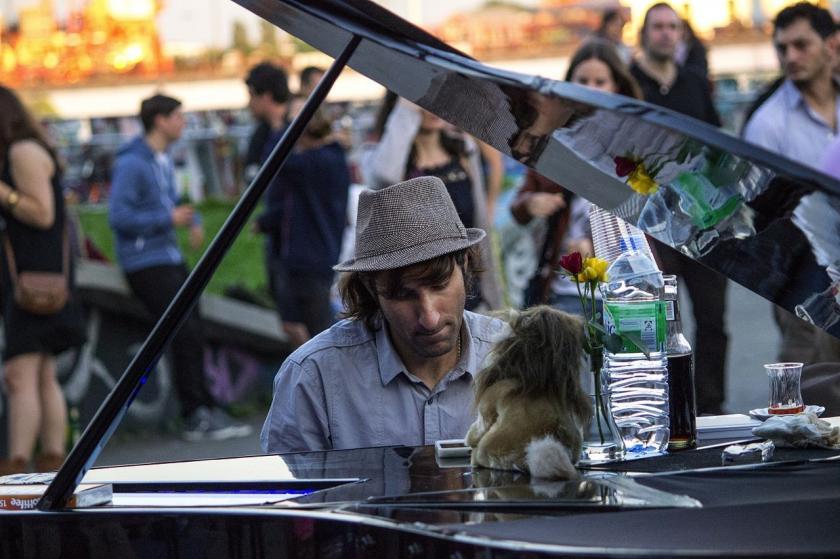UK: Bourgeois liberalism hits a dead wall!

Mustafa Yalçıner

Fotoğraflar: AA ve Evrensel
In Britain, the aristocracy and the bourgeoisie joined arms for the first time in the 1689 pact known as the “Glorious Revolution” and combined forces against the people. With the interests of the bourgeoisie guarded, the aristocracy’s political position was to be preserved and it would raise officers for the army that preserved the order domestically and the navy that secured colonies and markets abroad. The bourgeoisie had difficulty ruling and, moreover, did not feel secure without them and what they had to offer. However, once capitalism had come into being and started to develop, the aristocracy saw that henceforth it was economically in need of the bourgeoisie, its economic future and happiness was bound with that of the latter and it had become unable to manage without it.
Nevertheless, plenty of water has flowed under the bridge and over time, under conditions of capitalist monopolies and domination by financial capital, the aristocracy has well and truly turned into nothing but an ornament even for those who boast of its traditions.
In the final days of August, Ottoman grandson Boris Johnson asked for parliament to be prorogued and the Queen assented.
The United Kingdom has been fixated on Brexit since the 2016 June referendum. Governments have drawn up plans and discussed them with the Europeans many times and successive votes have been held in parliament. However, it has defied solution. The last two Conservative prime ministers resigned on account of this, and Johnson took the place of the last of these, May. He was simply elected as party leader and had not won an election and gained a vote of confidence from parliament. In short, he was somebody like a trustee. He was a screaming reactionary.
The Queen, who assented to the application for prorogation, is in appearance the top rung of the state. She does not in fact wield any particular power. She does not, but who can claim that the General Staff and senior civil service, that is the bourgeois state having the two basic institutions of the military and civil service that guards the bourgeoisie’s long-term overall interests and sets the parameters of the general course of affairs, are powerless? The signature appended was that of the state’s assent.
But is Britain not universally proclaimed to be the “cradle of democracy”? And can parliament not be said to be the prime instrument of the “cradle”? Was Britain not considered to be the exemplary “parliamentary democracy”? Was the claim not that parliamentary democracy was the sovereignty of the people and parliament was the institution in which the will of the people was manifested?
So, how is the coup against parliament to be accounted for? If, with no solution capable of being found, the sidelining of parliament, that is the legislature, and the deeming of the executive to have sole authority over the Brexit process is not a coup, what is it? Furthermore, workers and wage earners are not yet in a state of “imminent threat” for the bourgeoisie and it is the upper classes who have not yet managed to reach internal agreement and are at one another’s throats – with at most the participation of the petit bourgeoisie.
The bourgeois state has intervened effectively and with its powers, of course not in a display of Bonapartism but on behalf of financial capital and capitalist monopolies, in the anticipation of the detriment to it of Britain’s declining relations with the EU.
The Conservative Party is the monopolistic bourgeoisie’s very own party with Johnson’s identity not of decisive importance. If he turns out, like T. May, to be incompetent and make a mess of things, somebody else may take Johnson’s place, too. But the bourgeois state and its monopolies with its principal institutions are permanent and, even if they will have no compunctions about using the Labour Party when in dire straits as exemplified by history, the Conservative Party is the “ship” of state and it is governed with the Conservative Party. In fact, things would hardly have been taken as far as a coup were a political and constitutional crisis not brewing.
The first of two consequences is that royalty, now rapidly becoming superfluous as far as British workers and wage earners are concerned, is turning into an ever-heavy burden and a dispensable ballast. And the second is that the British bourgeoisie, in having cast off the “fig leaf” with its own hands and violated its own “democracy” which it readily confesses to being non-functional, has underlined its own duplicity along with that of its own democracy.
A third may be added. The shortcomings of bourgeois democracy are not limited to countries like Turkey, but the Turkish regime that has nothing to do with democracy cannot use events in Britain as material for absolving itself. It can just be said that the most recent British experience has shown once more that the struggle against the single-man regime is not a path traversable by bourgeois liberalism.



Follow Evrensel